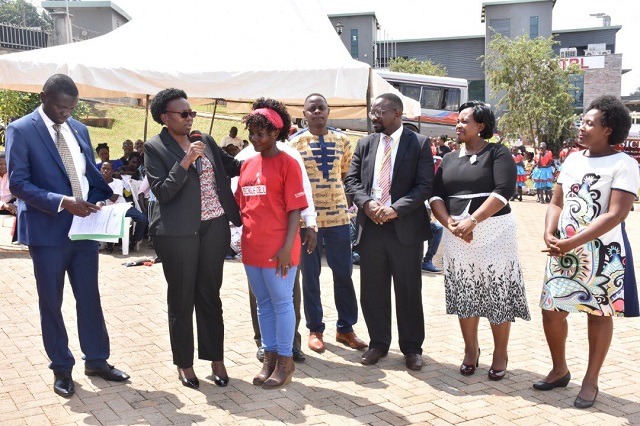
Kampala, Uganda | THE INDEPENDENT | Less than 20 per cent of suffers of sickle cell anaemia can access the ‘magic’ drug – hydroxyurea.
Hydroxyurea, a myelosuppressive agent, is the only effective drug proven to reduce the frequency of painful episodes and the need for blood transfusions, among persons living with sickle cell disease, a severe genetic blood disorder, which affects individuals who inherit genes that code for abnormal haemoglobin from both of their parents.
Dr Henry Ddungu, a haematologist at Mulago hospital says that while sickle cell treatment is unavailable to many, hydroxyurea, is currently the only approved medicine to treat sickle cell anaemia. Dr Ddungu says those who use the drug live near-normal lives free from complications like stroke, infections and pains that come with sickle cell disease.
But he explains that Hydroxyurea which would be the best option for all is rare because it still undergoing registration by the National Drug Authority for it to be officially allowed to be used in the country. He was speaking during an event to mark the World Sickle Cell day at the Uganda National Health Laboratories in Butabika today.
During the event, several sicklers made testimonies of how the drug which was initially used to treat some cancers suddenly relieved them from debilitating pain and unpredictable complications associated with the disease. But, many of them say, they have accessed the drug through trial setting save for a few who can still afford to pay for it after a trial on efficacy at the Mulago sickle cell clinic ended.
Health Minister Jane Ruth Aceng who also carries a sickle cell trait said the drug offers a better quality of life but is way too expensive for many to afford. A 500-milligram tablet of hydroxyurea goes for between 1200 and 1500 Shillings.
She said once registration for the drug is done, the government is already partnering with a Swiss pharmaceutical company Novartis to supply the drug at a cheaper cost and that with continuous lobbying and as the drug becomes cheaper, the Ministry of Health will urge the government to put it on the list of essential drugs.
According to Ministry of Health statistics, of the 1, 600,000 births in Uganda per year, 33,000 babies are suspected to be born with sickle cell disease. Of these, 80 per cent die before the age of five. Those who survive beyond five, hardly make it to their 18th birthday. Worldwide, 400,000 babies are estimated to be born with the disease. Of these, half are from Sub-Saharan Africa.
Meanwhile, the doctor explains that a lot of research is underway to come up with a cure of the genetic disorder that causes red blood cells which are normally disc-shaped to assume an abnormal sickle shape, making it difficult for blood to flow through vessels and deliver oxygen throughout the body.
Among what’s being studied is gene therapy that involves the introduction of normal genes to sufferers. For him, the only potential cure that’s currently available – bone marrow transplants, can only be used by a few who qualify after undergoing a thorough screening system.
*****
URN
 The Independent Uganda: You get the Truth we Pay the Price
The Independent Uganda: You get the Truth we Pay the Price



